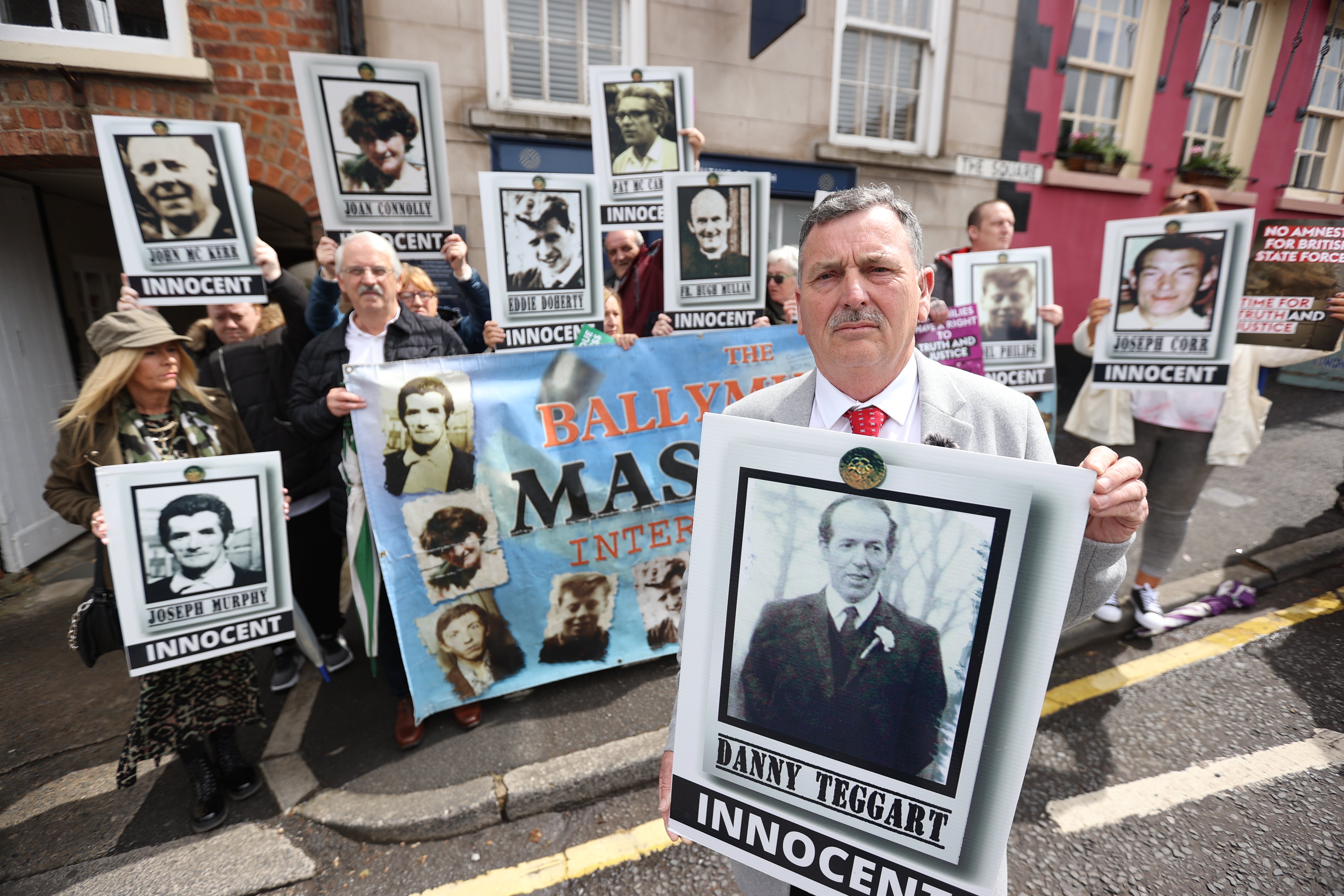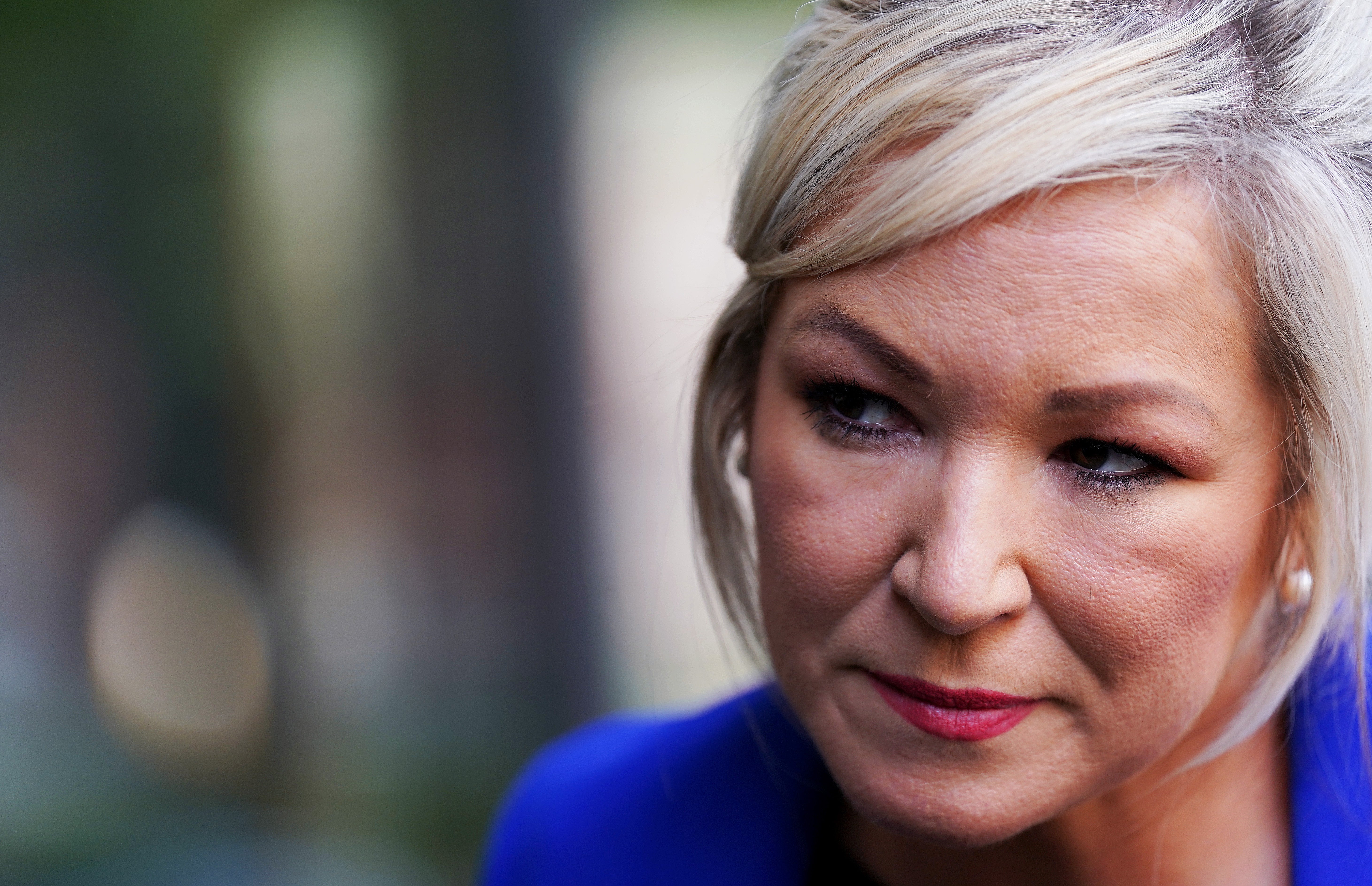
New legislation which aims to draw a line under the Troubles has been described as a “very bitter pill” for victims to swallow.
The Northern Ireland Troubles (Legacy and Reconciliation) Bill will see immunity from prosecution for Troubles-era crimes be offered to those who are deemed to have co-operated with an information retrieval body.
It will also close down future inquests and investigations, with a new independent Commission for Reconciliation and Information Recovery (ICRIR) put in place.
Those deemed to have co-operated with the commission will be offered immunity from prosecution.
Conversations are set to take place with Operation Kenova and the Police Ombudsman about setting their workload for the next year before wrapping up their legacy work.
The commission is planned to be led by a senior judge for five years, with likely two teams of qualified investigators and funding of £30 million per year.
The bill will also expand the prisoner release scheme qualification from 1973 to 1966, fixing what government regarded as an “anomaly”.
Most political parties and victims groups as well as Amnesty International have expressed concern and opposition to the plans.
On Wednesday morning, Northern Ireland’s commissioner for victims and survivors Ian Jeffers said it was a “very bitter pill to swallow” for victims.

“It does feel as if some of the last chances for what some victims would say is justice has been removed,” he told the BBC.
“Everybody recognises it’s 40 years, it’s 50 years, the chances of a conviction are very slim.
“But if you’ve lost your mother or your son are you going to genuinely give that up?
“I think that’s the big issue we’ve got to talk through with victims and survivors over the coming weeks.”
Meanwhile Kieran McEvoy, professor of law and transitional justice at the Queen’s University, compared the proposals to the truth recovery process which took place in South Africa in the 1990s where immunity was offered for information.
However he said the South African model was very different, with full disclosure required in quasi legal hearings, determined by a judge, adding that a large number of applications for immunity rejected.
“In this context, you’re talking about a subjective test where the person honestly believed they were telling the full truth, and if that is the case they must be granted an amnesty,” he told the BBC.
“So what it looks to me is like trying to find the easiest legal and political route to granting an amnesty and nothing like the same attention being applied to ensuring that victims get the full truth of what actually happened.”
However Veterans Commissioner Danny Kinahan said he believed the legislation was “a step in the right direction”.
He said he was confident that soldiers “want to come forward” and provide information to the commission.
Sinn Fein vice president Michelle O’Neill described the Government’s plan as “cruel and unjust”.

Speaking to reporters in Belfast, the republican leader said victims were “traumatised” by the Bill.
“I think what the British Government published yesterday, what they’ve demonstrated is that they are always going to prioritise the covering up of their role in the conflict here in Ireland over and above that of victims,” she said.
“Yesterday’s announcement does nothing to serve the campaign for truth and justice of many, many victims.
“I spoke to victims yesterday evening who are traumatised, their heads are in their hands, they’re heartbroken. They’ve campaigned for decades and now the British Government have told them yesterday that the interest of their forces are going to be put above their needs as victims, and I just do not think that is good enough by anybody’s standards.
“It’s absolutely disgraceful and actually so harmful, it’s actually cruel and it’s unjust.”







